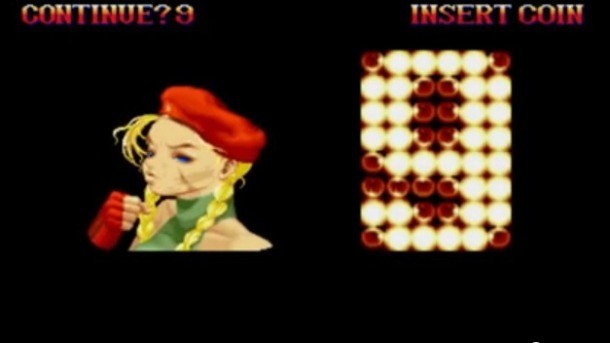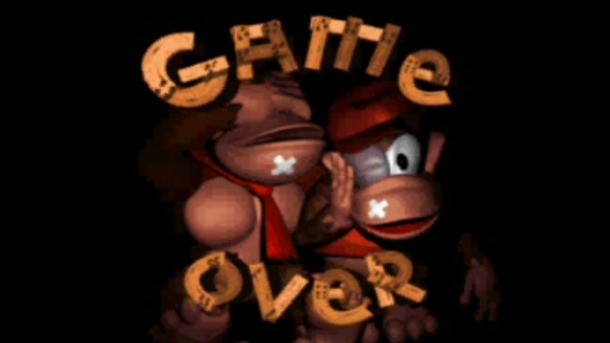Please support Game Informer. Print magazine subscriptions are less than $2 per issue
The Abandoned Games Dilemma: Trudging On, Starting Over, Or Giving Up

It happens to most gamers at one point or another. You load up your game save after being away for a while and soon realize you don’t have the foggiest idea of what’s actually going on in the adventure anymore. You’re playing guessing games on where to go next, and worst of all, you’ve forgotten half of the controls. Do you restart or keep pushing through hoping that you can jog your memory?
I’ve faced this conundrum so many times I’ve stopped keeping track. In a perfect world, I’d play every game consistently and not move on until it’s completed. But every so often I have to abandon one because of (sigh) responsibilities, or I’ve hit an area of frustration and must take a “rage break.” Regardless, the problem has no sure-fire solution and it’s nearly impossible to avoid its occurrence. As such, I’ve been trying to be more proactive on how to make the decision to trudge on, start over, or give up. No choice is right or wrong, and all make some type of sacrifice.
Trudging On

Why: Your time is valuable. If you’ve already invested a great deal of it, it makes sense to trek on. Why throw away all that time and effort?
The Sacrifice: If the game is story-focused, you may miss out on vital elements, especially piecing it together. Also, you must re-familiarize yourself with the game’s systems and controls, which is easier said than done.
Tips: Look through the instructions or any in-game compendiums; the menus can be your friend to point you to the information you need. If possible, talk to every NPC as they might provide clues to your next move or what’s going on in the story. Get in a battle as soon as possible to reacquaint yourself with the combat – you’d be surprised how fast it all comes back to you. Online walkthroughs also are a great way to get back in the swing of things, in case the game doesn’t make it easy.
The Reward: You didn’t sacrifice all the hours you already spent, and finished the game much quicker than you would have by restarting.
Starting Over

Why: If a game has a compelling story, why miss out on really connecting with it? If you want to understand the characters and arcs to the fullest, it’s essential to restart. Plus, you won’t waste the time aimlessly trying to figure out how to play the game again. All the time you spend there could be spent just restarting. Plus, if you’ve only invested a few hours, you’re not really losing much.
The Sacrifice: You’re giving up the time you previously spent to play through the same parts you already did. You also might not dig playing through the same content again, unless it's super engaging.
Tips: Make sure you write down the controls, the basic plot threads, and the next objective. Better to be prepared in case history repeats itself and you must abandon it yet again. That way, you won’t have to keep restarting, upping your chances to actually finish the game.
The Reward: You’re coming away with the best understanding of the story and systems possible, minimizing your frustration at figuring it out all over again.
Giving Up

Why: Sometimes there’s a reason you could pull yourself away from a game for other things. Was it really that gripping? If you did have a valid reason for putting it away (i.e., a huge work trip), and a game makes it that tough to get back into, maybe that’s on the game. In this day and age (especially with more handheld gaming), developers should anticipate gamers taking breaks or forgetting certain elements. That’s why I support hints, cues, or compendiums that are included.
The Sacrifice: You spent time on something that didn’t really go anywhere, but at least you had a slice of the experience and know some of what the game has to offer. You also have to face the fact that you never finished “X” game, and when people talk about that ending you won’t having anything to contribute. Life is tough. Or you could cheat and watch the ending on YouTube, the next best thing to actually beating the game.
Tips: Before you put the nail in the coffin, ask yourself if you were really enjoying the game that much in the first place. Is it worth trudging through or restarting? Sometimes the answer is no, and that’s perfectly okay. Play what interests you and don’t look back.
The Reward: Sometimes you just need to cut your losses. You’re not wasting any more time, and you didn’t force yourself to play something just to “finish it.” You’ve also freed yourself up for new games, hopefully ones you just can’t put down and count the hours until you can play them again. Those are the best.
As I face these three choices, I always take into account the type of game I’m playing and just how important it is I finish it. For instance, if it’s an RPG, which has so many elements to keep track of, I’ll usually restart entirely, or be forced to hit the abandon mission button. Thankfully, developers have been much better about not creating such a barrier if you take some time away.
Life is unpredictable. We can’t count on anything, but gaming is fun in and of itself, so it’s important to keep in perspective just how much fun going to back to abandoned game will be. Lately I’ve found that some games are more trouble than they’re worth, but every so often one makes me realize how much of a fool I would have been to let it slip away.
Which – if any – games have you regretted abandoning, and why?










